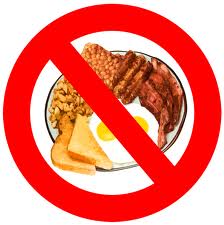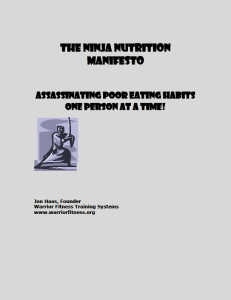Most of us have grown up with the phrase, “breakfast is the most important meal of the day” drilled into our heads.
We’ve heard it thousands of times and perhaps have even quoted it to others thousands of times as well. No harm was meant by it, in fact, the people who said it to us had nothing but the very best intentions in mind. Didn’t matter if you were hungry or not, our Moms made us eat breakfast, right?
Their thinking was sound. You need fuel. Your body needs energy. Kids have to be able to think clearly in school, study hard, and do well.
As we got older, the thinking changed from simply needing fuel to trying to “kick start” our metabolism. We thought that breakfast was necessary to maintain a healthy weight or even to help us lose fat by ramping up our metabolism first thing in the morning. Doctors told us this was true and so did our Moms, so we believed them. Many of us still do.
What’s the Reality?
But, as Jack Welch, former Chairman and CEO of GE, once used to say at the start of every business meeting – what’s the reality?
The reality is that when you wake up in the morning, your body is in its most effective fat burning state. This is due to a couple of things. One of them is that first thing in the morning your insulin levels are low. When insulin is low, you burn fat more effectively.
Eating a bagel and cream cheese or a bowl of cereal – doesn’t matter if it’s super whole grain stuff or Captain Crunch – will cause insulin levels to elevate and drop your fat burning furnace down to nil.
Another reason is that during the morning hours of about 7 am to 9 am, your body’s level of the hormone cortisol is at its peak. In this context, cortisol helps to break down fat by increasing the release of fatty acids to be burned for energy.
So when do I eat?
Good question. New research into old (very old, like caveman old) ways of eating has led to remarkable discoveries, or is it re-discoveries, that human beings are genetically adapted to phases of under-eating and overeating due to the abundance or scarcity of food.
Intermittent Fasting is one way to access that genetic adaptation.
While a normal fast can last anywhere from a full 24 hours to a week, an intermittent fast is a much shorter interval of going without food.
Studies have shown that people who practice intermittent fasting can receive all the benefits of a longer fast, but without the unwanted side-effects of catabolizing muscle and being on the verge of starvation. Shorter fasts are also much easier to adapt to and implement into your daily life.
Short, intermittent fasts, usually around 16 hours or so, seem to convey the same coveted results of longer more agonizing fasts such as burning fat, improving blood lipids, improved blood sugar control, appetite control, improved cardiovascular function, increased longevity, and stronger resistance to stress, to name a few.
The easiest way I’ve found to implement the practice of intermittent fasting is to simply skip breakfast. What time I chose to “break my fast” depends on what time I eat dinner the night before. So, for example, if I have dinner at 7 PM then I won’t eat again until 11 AM the following day. I usually try for a 16 hour intermittent fast Monday through Friday, then on the weekends I eat breakfast as usual.
So, to sum up
Want to burn fat? Stop eating breakfast.
Want to have more energy? Stop eating breakfast.
Want to have a super productive morning? Stop eating breakfast.
Want to be clear and focused? Stop eating breakfast.
Want to lower your blood pressure and cholesterol? Stop eating breakfast.
Want to lower your risk of Type II Diabetes and heart disease? Stop eating breakfast.
Want to increase growth hormone release? Stop eating breakfast.






5 Comments
Claire K.
July 24, 2012I would read this just after finishing breakfast, lol.
Jon
July 24, 2012There’s always tomorrow, Claire! 🙂
John
July 25, 2012I am a type 2 diabetic and I find that if I skip breakfast I feel as if my head is in a vise.
Jon
July 25, 2012Hi John,
Please understand that I am not a doctor and my recommedations are not medical advice. Please run this by your doctor before attempting.
Thanks,
Jon
[…] 8) Breakfast, The Most Overrated Meal of the Day […]
Leave A Response